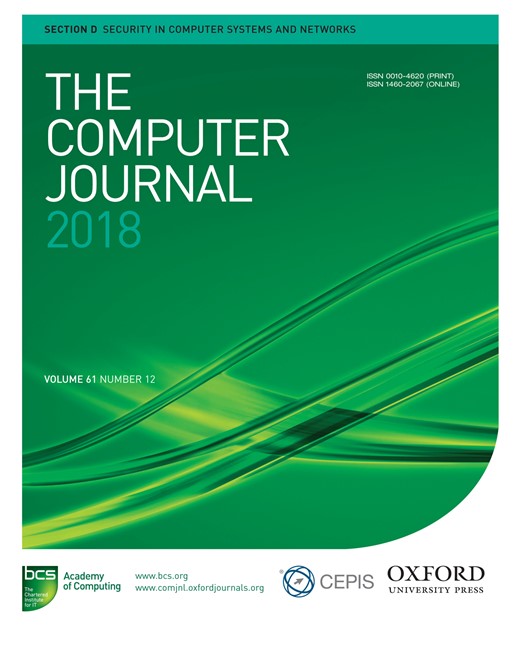-
Views
-
Cite
Cite
Eunsung Lee, Sang Woo Kim, Non-interactive Conditional Proxy Re-Signature in the Standard Model, The Computer Journal, Volume 61, Issue 12, December 2018, Pages 1772–1782, https://doi.org/10.1093/computer_journal/bxy036
Close - Share Icon Share
Abstract
Proxy re-signature allows a semi-trusted proxy to transform a delegatee’s signature on a message into a delegator’s signature on the same message. To transform a signature, the proxy uses a re-signature key that is received from the delegator. Once the proxy has received the re-signature key, the proxy can transform all the delegatee’s signatures to the delegator’s signatures; this process is undesirable in some applications that require a fine-grained delegation. To overcome this limitation of proxy re-signature schemes, the concept of conditional proxy re-signature was proposed. It provides fine-grained delegation, by which a re-signature key can be used to transform a signature on a message with a specific condition. To the best of our knowledge, two conditional proxy re-signature schemes have been proposed, but neither is proved in the standard model. We propose a non-interactive conditional proxy re-signature scheme in the standard model. In the proposed scheme, a delegator can choose a condition and can non-interactively generate a re-signature key even if a delegatee is off-line. Therefore, the delegator can fully control a delegation process. Our scheme is existentially unforgeable against adaptive chosen message attack and adaptive chosen condition attack.




